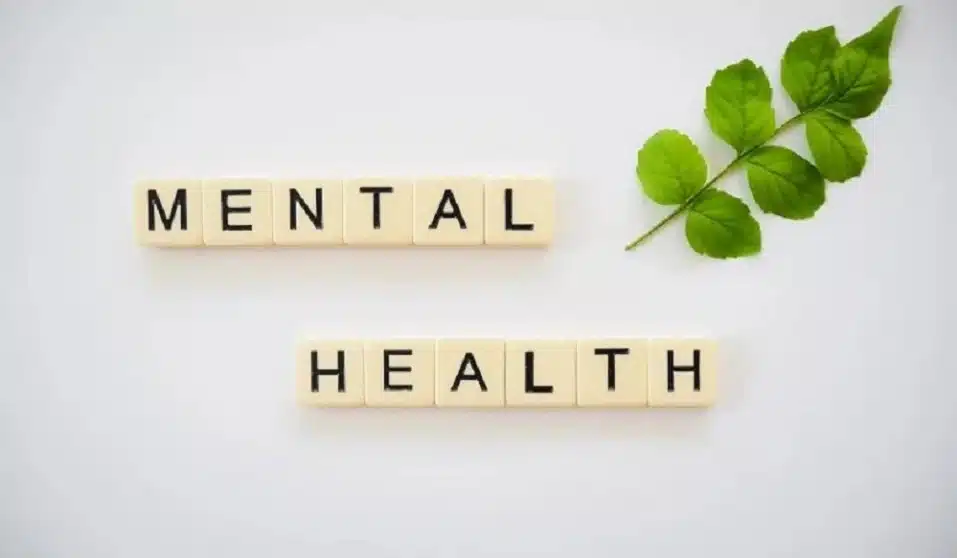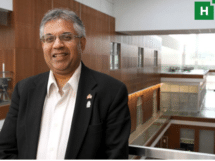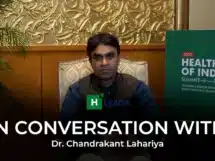World Mental Health Day is observed on October 10 every year. Anna Chandy, mental health expert and author of ‘Battles in the Mind: Conquering and Winning Over Emotional Pain sheds light on the myriad nuances of mental health in today’s pandemic world. In order to bounce back from a difficult experience, we need emotional agility and flexibility that accounts for contextual challenges and realities.
The World Health Organisation (WHO) recently conducted a survey of 130 countries to understand the impact of COVID-19 on access to mental health services. Although the demand for mental health is increasing, the study found that the pandemic has disrupted or halted critical mental health services in 93 per cent countries worldwide.
Based on this global data that underscores the urgent need for increased funding, the goal of World Mental Health Day campaign this year is to increase investments in mental health. However, that alone cannot remedy the long-neglected public health challenge.
“We cannot copy the West. Solutions need to be tailor-made for our society and account for our cultural complexities and context,” asserts Anna Chandy, social psychologist and one of India’s thought leaders in mental health. For over two and half decades, she has been leading strategic interventions aimed at driving systemic change in the country’s mental health ecosystem.
Anna has worked extensively in psycho-socio rehabilitation with survivors of the Gujarat earthquake and victims of the tsunami in Sri Lanka and India. “Resilience is the ability to bounce back after a difficult experience and I see this as an individual’s capacity to be emotionally agile and have a flexible frame of reference. When we have this flexibility, we are able to account for contextual difficulties and realities and work towards problem-solving,” says the acclaimed founder of Anna Chandy & Associates and author of ‘Battles in the Mind: Conquering and Winning Over Emotional Pain’.
Here are edited excerpts from an interaction with the mental health expert on self-reflection, vulnerability, psychological first aid training, parenting during the pandemic, and more:
How are you weathering the pandemic?
The pandemic and the lockdowns have reinforced my belief in our human capacity to be emotionally agile when we give ourselves permission to be vulnerable. I follow a simple daily routine that includes my morning walk, appreciating aspects of nature, and activities that make me feel energised. This has not only made me stay positive but also helped me sustain my emotional well-being.
What is likely to be the consequences of the pandemic on our collective mental well-being?
The impact of the pandemic will unfold in the coming years, especially with our young since this experience will be a part of their psychological construct. The pandemic has created an environment of disruption, uncertainty and loss. Diverse emotions of fear, anxiety, sadness, are being expressed across age and demographics.
With the numbers increasing, people seem to be living in hypervigilance and being overly-anxious about possibilities of loss due to the illness, contracting the illness, and whether or not they would get adequate and timely medical support. There are instances of people being overtly overreactive and expressing intense emotions, which do not match the contexts in which they are expressed.
As counsellors, we are seeing an increasing number of youth between 20-30 years reaching out for help because they are unable to cope with anxiety and the fear of the unknown. This experience has triggered many questions on the future, loss of goals and aspirations, and feelings of financial insecurity.
Tumultuous events, such as natural disasters as well as what we are experiencing, have an impact on the survivors. The impact may be transmitted to the coming generations and therefore the work that is being done for psycho-social rehabilitation needs to be cognisant of this reality. Some of the individuals we have worked with during the tsunami in Sri Lanka continue to stay in contact and share narratives of how some of their decisions are influenced by the impact. Even a decade later, they talk about living in uncertainty.
It is imperative that all stakeholders in our country address the impact of the pandemic currently and in the coming years. We need to provide interventions that factor in these aspects.
Do you feel that COVID-19 has helped break the taboos around mental health?
Mental health in India is at the crossroads. The sector has faced incredible tumult over the last seven months or so when the pandemic’s consequences started playing out across the country. Back in 2017, The Lancet estimated that nearly 200 million Indians were affected by mental disorders. Against this backdrop, COVID-19 has meant we are currently facing not one pandemic, but two.
The situation is characterised by:
a) More information on and attention paid to mental health.
b) But, also, information that is minimising the educative process around mental health. I would go as far as to say that steady gains in shaping the narrative around mental health over the years have been eroded. To me, the way the mental health landscape has been “hijacked” or “repurposed” is very alarming.
c) There are also larger social issues that are being mentioned in the context of mental health. Increasing alcoholism, substance abuse and domestic abuse have come to the fore.
It is important to realise that mental health has three components: biological, psychological and social. We need to look at all three aspects simultaneously.
How do we address the socio-economic barriers in improving access to mental health, especially in a country like India?
I am a firm believer in the legitimacy and efficacy of community-based interventions, especially in a collective society like India. I also believe that various professionals have a role to play – counsellors, psychotherapists, psychiatrists, physicians.
In India, we do not have comprehensive national guidelines on the code of practice in counselling and psychotherapy. Currently, there is some awareness of the role of psychiatrists and clinical psychologists. However, the role of psychotherapists, counsellors and mental health social workers is minimal.
In my personal capacity, I have created guidelines for the associates and other practitioners working with me and these guidelines are an outcome of my learnings from best practices internationally. Supervision and counsellors taking personal therapy themselves are essential for the welfare of the client.
Our training systems need to be updated and we need to account for the various people that make up the ecosystem of mental health professionals, with each complementing the others. We need to include more people who have an influence on the system – whether these are headmen in villages, leaders of social groups, or any other integral member of the community.
In my view, social media personalities, online influencers, and celebrities can contribute to reducing stigma as they impact the perception of people. However, the messaging needs to be prudently delivered so that they are ethical, in order to minimise, and preferably eliminate harm. Civil society, youth, educational institutions, corporates, and governments – all have a role to play.
Finally, we need to provide psychological first aid training that can be offered through counsellors. We need this training to be delivered at the systemic level.
How can we ensure that isolation and social distancing don’t lead to loneliness? Is solitude good for mental health?
Humans are relational animals, which means that we need to engage with each other to feel a sense of belonging, love and validation for our existence. Having said that, we need to account that social isolation is needed for our own safety and that of others so that we don’t contract or transmit the illness. The social isolation during this difficult time is particularly challenging because while we understand it is for safety, we also feel the void of having the relational need met and therefore it does impact our mental health.
There is a difference, however, in withdrawing for some time on a regular basis. Quiet time and self-reflection in any form are important for all of us. This quiet time allows us to take a “pause” and replenish our psychological energy, particularly when we are feeling overloaded and stressed.
How do we prioritise self-care, especially for women in cultures that idolise self-sacrifice?
There is a difference between self-care and being selfish. In some cultures when women and caregivers engage in some form of self-care, it is considered to be selfish. However, every human being needs to engage in adequate self-care. Or else, they will eventually burn out or have trouble dealing with feelings of resentment and being taken for granted. This often translates into people doing tasks without motivation or passion.
In today’s uncertain times, how do we raise healthy children?
This pandemic most certainly will be part of the psychological construct for children and adults. It is a time of uncertainty and anxiety. It is important that parents give age-appropriate information regarding the current situation and also overt and covert permission for children to express their feelings, whatever they may be. Expression of feelings and vulnerability is the key to raising healthy children.
Can social media be injurious to mental health?
Social media is part of our lives, but excessive use of any technology is detrimental to mental health. Any tool we use needs to be managed so that it doesn’t lead to addictions, toxicities, and irresponsible behaviours. Social media too needs to be managed according to age and context. We need to engage responsibly.
Cricket Australia announced the appointment of a mental health manager to help players “spending extended periods in bubbles”. Should other employers follow suit?
It would be beneficial. I believe that mental health is at the heart of how people function in whatever task or domain they are in. Having psychological support will give them a safe space to explore themselves, their feelings and whatever anxieties and difficulties they are facing in their contexts.
We live in a world that demands positivity and moving on. How does one cope effectively with loss and grief in such an environment?
Unless we account for the pain and remove it from our psychological space, we cannot be positive. We need to give ourselves time to grieve, express our vulnerabilities, and share our difficulties. Loss and uncertainty need to be accounted for.

















